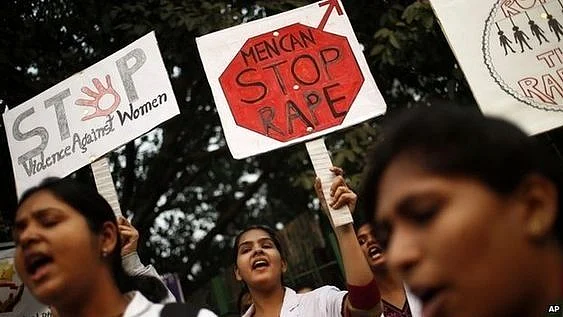A 28-year-old Indian Air Force officer at the Coimbatore Air Force Administrative College accused her batchmate of rape and alleged that she was subjected to the banned 'two-finger test' for confirming sexual assault, reported Hindustan Times on Friday, 1 October.
On 17 October 2018, United Nations (UN) Human Rights, UN Women and the World Health Organization (WHO) called for a ban on 'two-finger test' in order to eliminate violence against women. They declared it a "medically unnecessary, often times painful, humiliating and traumatic practice [that] must end."
What Is a Two-Finger Test?
A "per vaginal" or two-finger test is an explicitly intrusive physical examination wherein a doctor inserts two fingers inside the vagina of a rape survivor to check if the hymen is intact or not.
It examines the laxity of vaginal muscles in order to determine if the woman has engaged in or has been subjected to sexual intercourse – a proof of virginity. In some cases, it is done by inspecting the size of a vaginal opening and for tears in the hymen.
As per WHO, neither of the methods in the two-finger test can prove that a woman has had a vaginal intercourse or not.
The technique is practised on the assumption that a hymen can be torn because of sexual intercourse and that the appearance of female genitalia can determine the sexual history of a woman.
Why Is the Test Controversial?
The virginity testing is a patriarchal idea which transgresses ethics, ethical medical practices, as well as the privacy of the victim.
For decades, however, the two-finger test was the only method of confirming rape. The fact that the test once enjoyed legal status in India, means the law once conformed to the sexist idea of virginity as a 'virtue', demanded from unmarried women in India.
In addition to being medically uncalled-for, it is exclusively performed on women, mostly without their consent.
The practice is rooted in gender and power inequalities, wherein a woman's body is a subject of archaic ideas and/or can be regulated as per men's desires.
Supreme Court of India Has Banned Two-Finger Test
Operating on the belief that women participating in premarital sex is unacceptable, the test is not only regressive and sexist, but also no longer in accordance with the law.
In May 2013, the Supreme Court (SC) banned the two-finger test on rape victims on the grounds that it violates their right to privacy.
The SC asked the government to provide better medical procedures in order to confirm sexual assault.
A bench of Justices BS Chauhan an FMI Kalifulla said that even in case of affirmative two-finger test reports, consent on the part of the victim cannot be presumed.
The judges declared that rape survivors are entitled to legal recourse that does not violate their mental and physical integrity, as well as dignity.
(At The Quint, we question everything. Play an active role in shaping our journalism by becoming a member today.)
